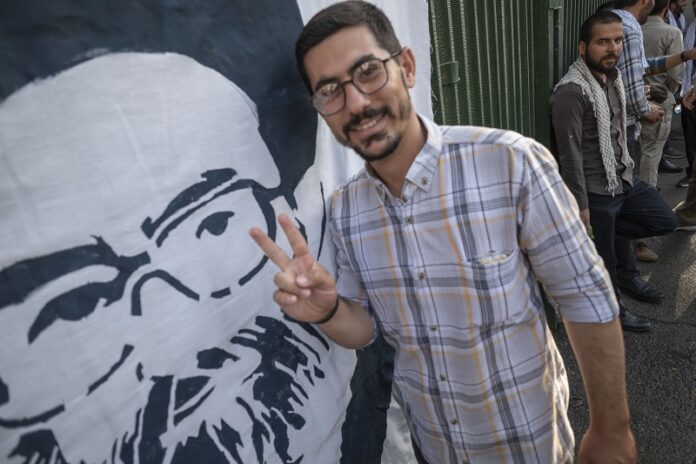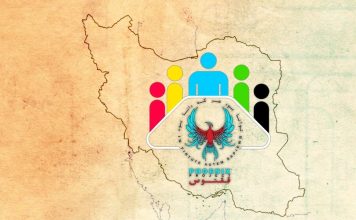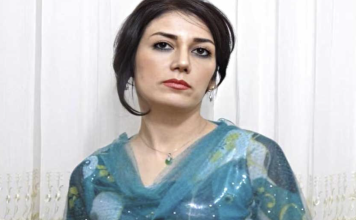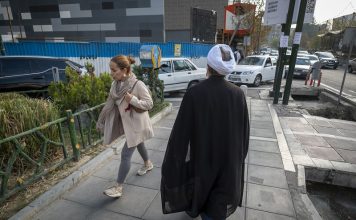
By Shahram Sabzevari
The Iranian Intelligence Ministry reportedly uses money and financial rewards to attract, entice, and recruit university graduates to work as spies in foreign countries.
While some recruits receive special training for specific operations abroad, others are experts in various fields who already live in other countries and work for foreign governments and private companies.
The Iranian intelligence agencies identify these potential candidates and recruit them with attractive financial offers.
The Deputy Minister for counterintelligence and espionage allegedly selects agents from among students who receive scholarships to study abroad to collect sensitive information on various subjects for the Islamic Republic.
[aesop_image img=”https://kayhanlife.com/wp-content/uploads/2022/06/2022-06-03T000000Z_2029759929_MT1NURPHO000MB75A5_RTRMADP_3_IRAN-DAILY-1.jpg” panorama=”off” credit=” REUTERS./ ” align=”center” lightbox=”off” captionsrc=”custom” caption=”An Iranian Basiji (Member of Basij Paramilitary force) university student waves a yellow flag with a portrait of the former Commander of the Islamic Revolutionary Guard Corps (IRGC) Quds Force, Qasem Soleimani (C) during a rally to mark the thirty-third death anniversary of the Founder of the Islamic Republic, Ayatollah Ruhollah Khomeini, in front of the main gate of the University of Tehran on June 3, 2022.” captionposition=”left” revealfx=”off” overlay_revealfx=”off”]
The selected candidates undergo a security check before being trained and evaluated. A team of agents reportedly identifies all potential candidates, runs a thorough background check on them, and reviews their political views and affiliations.
The security agencies exploit weaknesses, problems, or vulnerabilities like financial difficulties to lure and recruit candidates.
Students on scholarships who study abroad are susceptible to manipulation, given that most struggle with financial difficulties, especially during their first years in a foreign country.
Scholarship students are in constant contact with the Islamic Republic embassies in the countries they live and study. Many are reportedly approached and screened at these embassies. The recruiters allegedly offer potential candidates opportunities to work on scientific and research projects at various institutes.
Students or graduates recruited in a foreign country allegedly undergo special training by the same branch of Iranian intelligence that enlisted them.
For instance, many Iranian spies have reportedly completed six-month to one-year courses at Imam Sadegh University. Some even return to Iran during their mid-term or spring break holidays to complete their courses. Others receive online training. Some briefing sessions are reportedly held inside the Iranian embassies.
[aesop_image img=”https://kayhanlife.com/wp-content/uploads/2022/06/دانشگاه-امام-صادق.jpg” panorama=”off” credit=”The Imam Sadegh University entrance. KL./” align=”center” lightbox=”on” captionsrc=”custom” captionposition=”left” revealfx=”off” overlay_revealfx=”off”]
Their assignments reportedly include posing as researchers, merchants, and journalists and approaching foreign government officials, politicians, parliament representatives, lawyers, experts in various fields, business executives, and journalists.
Several Iranian Intelligence Ministry agents allegedly operate as “Parastoo” (honey trap), luring their targets into emotional and sexual relationships.
While some students reportedly start working with the Ministry of Intelligence while still in university, others begin their mission after graduating from university and getting jobs in specific companies and institutions.
Shahin Dadkhah is one of the most notable examples of these agents. Mr. Dadkhah was a member of Iran’s nuclear-negotiating team in former President Mohammad Khatami’s government and worked for the Ministry of Intelligence’s counterintelligence department.
In an interview with Voice of America’s (VOA) Mehdi Falahati on the “Last Page” program, Dadkhah alleged that the Ministry of Intelligence recruited him in Italy when he was only 19. While still in university, he reportedly met Miss Israel and traveled to that country with her help several times.
University graduates have a greater chance of getting hired by companies that handle sensitive information. Some of them are hired by high-tech and innovative technology companies.
The Ministry of Intelligence focuses on attracting IT professionals in telecommunications companies or those working for social network platforms, such as Facebook, Instagram, and Twitter.
Employees of foreign companies, including mobile and internet operators such as Telecom or Vodafone, have significant access to their customers’ personal information.
For instance, efforts to block the Instagram accounts of Kayhan London, and Farashgard (Iran Revival), an Iranian political action network, or deleting contents from the Independent-Farsi online newspaper are examples of such operations.
The problem is so prevalent and severe that it has been investigated by the U.S. House Foreign Affairs Committee and House Armed Forces Committee.
On June 7, The Washington Free Beacon said: “Three Republican lawmakers on the House Foreign Affairs and Armed Services Committees want information about what steps Meta has ‘taken to confront infiltration by proponents of the Islamic Republic of Iran’ following reports the social media giant is deleting and censoring accounts tied to anti-regime activists.”
“The lawmakers — Reps. Jim Banks (Ind.), Claudia Tenney (N.Y.), and Joe Wilson (S.C.) — also want to know if Meta is investigating claims that Instagram, the video-sharing app owned by the company, has been infiltrated by those sympathetic to the Islamic Republic in Iran,” Mr. Kredo, who wrote the article in The Washington Free Beacon added.
On the same day, Mr. Kredo tweeted: “Meta Under Congressional Investigation for Censoring Iranian Dissidents — As protests grip country, Instagram content moderators accused of taking bribes from Iran to ban pro-democracy reformers documenting regime crimes.”
“Iran sought to produce and source weapons of mass destruction as recently as 2020,” The Washington Free Beacon reported on May 26, quoting a German-language report issued a week earlier by the Bavarian Office for the Protection of the Constitution, a state security agency equivalent to the FBI.
“The report, which covered the year 2020 and was independently translated for The Washington Free Beacon, provides the firmest evidence to date that Iran is misleading the world about its nuclear program,” the news website explained.
“Iran’s intelligence services also are engaged in ‘the observation of and fight against opposition groups, domestically and abroad,’ according to the Bavarian Office for the Protection of the Constitution report, which shows that Iran’s leadership continues to prioritize the surveillance of regime opponents living outside of the country,” The Washington Free Beacon added.
A Germany-based Persian-language moderator working for TELUS International recently said he was offered 5,000 to 10,000 euros ($5,350-$10,700) to delete certain Instagram accounts belonging to journalists and political activists.
TELUS International is a Canada-based third-party company responsible for dealing with reports and complaints from Instagram and Facebook users.
Deutsche Welle-Farsi recently reported on the alleged involvement of the son of the former Iranian ambassador to Bulgaria in the TELUS International case.
“Following reports on the infiltration of social media platforms by Iranian agents and removal of certain posts, Deutsche Welle-Farsi has uncovered new information about the incident,” a tweet by Deutsche Welle-Farsi on June 9 said. “The video [included in the tweet] reveals parts of these events.”
Some agents try to get close to members of the opposition groups by posing as journalists, researchers, artists, or fashion models. Other agents active in foreign countries are reportedly children of the senior Iranian government and military officials. There are still others who work in banks and financial institutions.







